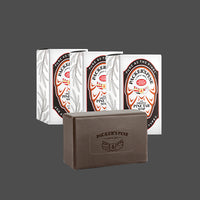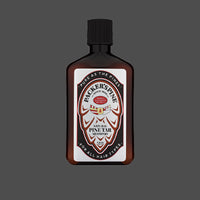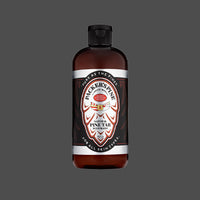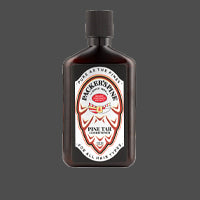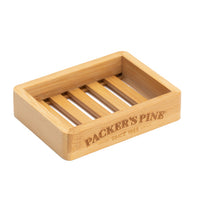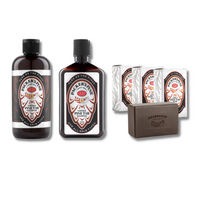Pine Tar Soap for Eczema
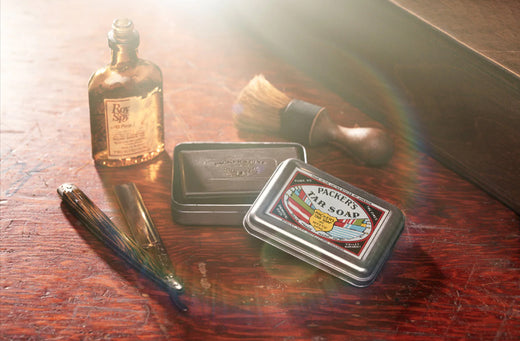
Eczema flare ups can cause more than just an annoying, unsightly rash. Eczema, also referred to as atopic dermatitis, can be severely painful, so much so that it may limit the range of movement for affected areas. It can ooze, bleed, and cause severe, debilitating itchiness. It can be so uncomfortable that it can cause insomnia in some sufferers. Even soft, natural fabrics may irritate active eczema lesions.
Over 30 million Americans per year suffer from some form of eczema. It is such a common condition that there are local and national eczema support groups, societies, and advocacy groups. Of course, there are many therapeutic options that have shown to be useful in lessening the severity of eczema—but which ones are right for you?
Many people prefer a natural approach to eczema treatment as it can reduce the potential for side effects and further allergic reactions. Because pine tar and pine tar soap have been used for centuries to help lessen the symptoms of eczema and other skin maladies, it is often a go-to remedy for those who want to take control of their own health and proactively treat and prevent eczema outbreaks. Read our FAQs below to find out more about eczema and how pine tar soap for eczema can help the process of healing from this chronic painful condition.
Eczema FAQ
What causes eczema?
There are many potential causes of eczema, and it is not always easy to pinpoint the reason for a flare up or a new case of eczema.
Genetic predisposition contributes to eczema as do common allergens such as eggs, milk, mold, pollen, peanuts, soy, wheat, pet dander, and dust mites. Chemical sensitivities in personal care products can also lead to eczema as can smoking.
Stress is another potential trigger. While no one is exactly sure why there is a connection between stress and eczema, it is thought that the elevated hormones that accompany stressful situations can dysregulate the body’s immune response and lead to an inflammatory response, resulting for some people in eczema. The aggravating itchiness and dry, scaly appearance can in turn cause additional stress for eczema sufferers, leading to a worsening of the condition.
Who suffers from eczema?
Eczema is most common in babies and children, but adults are far from immune to eczema. Babies have immature immune systems and may be overly sensitive to their environments. Babies often develop eczema in elbow joints and on the backs of their legs, where excess skin and baby fat can cause chafing. Baby eczema often shows up on the infant’s cheeks as well.
It is it possible to cure eczema?
Since eczema can have multiple causes or facets, some people find that a multi-pronged strategy of addressing the causes helps to control their eczema. This might start with eliminating known allergens or seeking allergy treatment. You can also try using natural skincare products and decreasing stress with meditation, exercise, and other relaxation techniques. Washing clothes in fragrance-free detergents and wearing only natural fibers will keep you from exacerbating the condition.
Is eczema contagious?
Eczema is not contagious.
How can you tell the difference between eczema and psoriasis?
Psoriasis causes a thickening of the skin in well-defined patches, often on the elbows and knees. It may be mildly itchy as well as scaly and white with red edges. Eczema can present as scaly red patches with red bumps that weep and scab over anywhere on the body. Unlike psoriasis, eczema can cause severe itching and pain.
Can food allergies cause eczema?
Yes. Some people undergo allergy testing in order to pinpoint the dietary causes of their eczema outbreaks. Because several foods may be to blame for an eczema outbreak, exclusion of foods by trial and error may be inadequate to find all of the culprits. Environmental allergens such as pollen, dust, and mold can also trigger eczema.
Can eczema be cured naturally?
People have used countless natural remedies over the years to treat eczema.
Pine tar soap is an age-old remedy for a multitude of skin conditions, including eczema, due to its antimicrobial and antiseptic properties.
Other possible natural remedies for eczema include apple cider vinegar compresses, colloidal oatmeal baths, bentonite clay masks or baths, topical aloe vera gel, bathing with bleach added to the bath, and applying honey or tea tree oil to the affected areas. A humidifier in the winter or in very dry climates may also promote healthy skin. These are just a sampling of potential ways to improve and prevent eczema lesions.
Eliminating offending, allergy-causing foods and promoting anti-inflammatory foods in the diet may have a significant impact on the severity of eczema. UV light therapy is a non-drug intervention that may also clear eczema and similar skin conditions.
Whether eczema can be cured completely depends on each individual case. Some people have chronic eczema that can last for years. In other cases, it may disappear more or less permanently once lesions are resolved.
What are the common pharmaceutical interventions for treating eczema? Do they have side effects?
A common topical medication for the treatment of eczema is a corticosteroid cream. Steroids can reduce itching and inflammation so that skin can begin to heal. However, steroids can have serious side effects, such as skin thinning, additional rashes, glaucoma and cataracts, and hormonal changes. JAK inhibitors and calcineurin inhibitors may also be helpful, but they also come with their own side effects and risks.
Pine Tar Soap for Eczema FAQ
How does pine tar soap for eczema work?
Pine tar has been used for centuries to improve itchy, dry, and unsightly skin conditions. Pine tar has antiseptic and astringent properties and has been shown to inhibit the growth of fungi and bacteria, which can contribute to a number of different skin maladies. Pine tar soap has also been shown to reduce inflammation and itching, which allows the skin to heal and help it return to normal.
Pine tar soap has a unique quality of being able to clear microbial growth from the skin while keeping it moist and hydrated at the same time. As skin begins to clear and the itch lessens, eczema sufferers may feel relief and optimism, which may improve with each application of pine tar soap.
Does pine tar soap contain ingredients that worsen eczema?
Not all pine tar soaps are created equally! Make sure to read the label and choose a pine tar soap that is free of common toxic ingredients, including formaldehyde, parabens, polyethylene glycol, sodium lauryl sulfate and sodium laureth sulfate, and triclosan.
Can I use pine tar soap along with my doctor’s prescribed remedies for eczema?
As long as this is OK with your doctor, we recommend it! There are so many different remedies for eczema because it often takes a great deal of trial and error to find something that works for your particular case. We believe that pine tar soap is an excellent, proactive way of helping to keep your eczema at bay every time you bathe or shower. Your skin may feel tingly and the lesions may feel calmer and less itchy after the use of pine tar soap.
Is pine tar soap safe to use for babies and children?
Pine tar soap is generally considered to be safe for use in babies and children. As with any new product you are using on a child, start slowly and carefully observe any changes or reactions on the child’s skin. Because pine tar soap is moisturizing as well as antimicrobial, you may find that it is just the thing to help clear their sensitive skin.
Are there any side effects when using pine tar soap for eczema?
Studies show that pine tar soap is rarely the cause of irritation or allergic reaction. However, some people may find that they are sensitive to pine and its constituent compounds. If you suspect that you may be sensitive to pine tar or are in the middle of an eczema flare up, test a small amount of pine tar soap on a limited area of your skin. After 24 hours, if you do not observe irritation, you should be fine to use pine tar soap on the rest of your skin—even on your face.
Can pine tar soap prevent eczema flare ups?
Keeping skin clear of bacteria and fungi is potentially a good way of preventing eczema flare ups before they start. Because we use soap every day, integrating pine tar soap into your daily routine is a perfect solution for people and families that experience skin conditions. And because pine tar soap is known to moisturize as it cleanses, it is also ideal for general daily use.
Does pine tar soap help relieve the itchiness associated with eczema?
Pine tar soap has been recognized in many peer reviewed studies to relieve itchiness (pruritis). When we scratch our itchy skin, nerves become activated and tend to aggravate the itchy sensation even further. Pine tar soap is an excellent choice to use daily to help lessen the itch of eczema and many other irritating and painful skin conditions as well.
Can pine tar soap be used on facial eczema?
Yes, pine tar soap is generally safe and recommended for use on facial skin as it is a gentle detoxifier that also promotes moisture. As always, try pine tar soap on a small patch of facial skin and wait 24 hours before proceeding to wash your face as normal.
Is it safe to use pine tar soap for eczema when there are open blisters?
Eczema sufferers often experience oozing or weeping sores when their eczema is in the active—and most painful—state. Pine tar soap has been used for hundreds or even thousands of years to disinfect wounds. Therefore it is safe to use on open eczema blisters or sores as well. Pine tar soap is a gentle, non-toxic means of detoxification, so it often proves ideal to use as a disinfectant when eczema outbreaks are at their worst.



